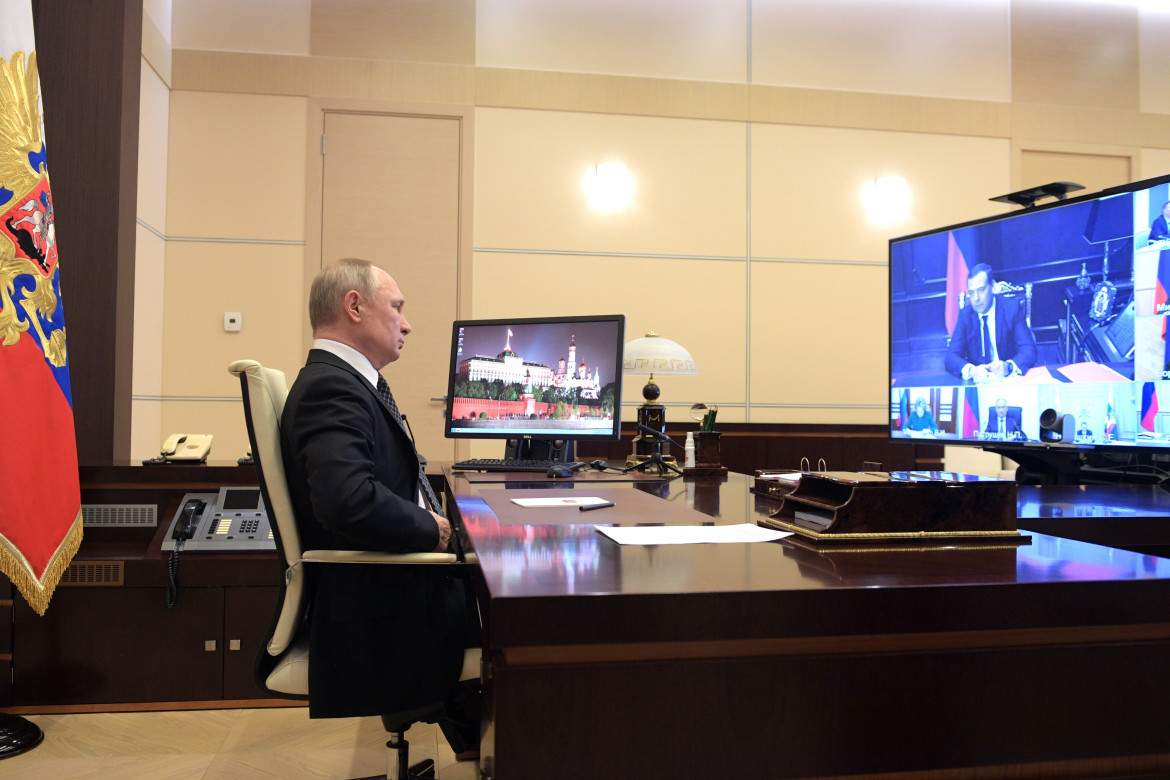Commentary
A ‘Nuremberg’ for Ukraine? We can and must do better
In Nuremberg, the winners tried the losers before a special court. After the Ukraine invasion, war criminals must be tried by the entire international community. There are a few possible scenarios.

The news about the activity of investigators, forensic anthropologists, ballistic experts and humanitarian NGOs such as Human Rights Watch engaged in the documentation of crimes committed in Ukraine are now coming at a similar pace as the updates on the progress of the conflict. Prosecutor Venediktova regularly puts out information about the number of crimes she is investigating, with the contribution of personnel sent in by various states (including the United States). Other countries (Germany, Poland, Sweden, etc.) have launched their own investigations, in application of the principle of universal jurisdiction (which makes it possible to untether jurisdiction from the criteria of territoriality or nationality of the persons involved).
Others, including Italy, have chosen to collaborate with the Prosecutor at the International Criminal Court. Each of these pathways implies a different procedural course. And the question of how the evidence collected will be used – i.e. in court, beyond the importance it may have for future historical memory – is by no means a secondary one.
The first possible scenario, that of a trial in Ukraine, would not be the best solution, despite the strength of the territoriality argument. If we exclude a trial in absentia, which, if approved, would have little more than symbolic value, a trial in Ukraine (at least against Russian defendants) presupposes that Ukraine will have won the war in the meantime. Even if that does occur – and at the moment we cannot make a prediction – it would become a trial of the winners against the losers, with all the limitations that come with that.
The scenario of a trial in another country – the “Pinochet” option – is based on an idea that we can easily get behind: that international crimes, as they violate universal values, deserve an equally international response.
However, in light of the very limited institutionalization of the international community, such a trial would be “decentralized”: i.e. entrusted to each state, each having its own interest in not leaving abhorrent conduct unpunished. This option also has obvious limitations: not many states have laws that provide for this option, and those that do generally condition such a trial on the presence of the accused on their territory. The concrete effect ends up consisting in nothing more than a limitation of the escape routes of those criminals who have lost power in the meantime.
The third option is more plausible: the trial would be entrusted to an institution created for this purpose. However, the institution in question can be of two types – and there is a marked difference between them. It can be an ad hoc tribunal, such as those for the former Yugoslavia and Rwanda (there has already been a proposal for setting up such a tribunal, which would inevitably have to be established in some other way than through a Security Council resolution). However, this would be a special tribunal created after the events, which is in conflict with an essential principle of criminal justice. The other alternative is the International Criminal Court (which, however, is not recognized by the U.S., Russia and China, among others): a body created precisely to avoid having to resort to special courts, which fulfills the principle of non-retroactivity and which would also have jurisdiction, following the document certifying the acceptance of jurisdiction filed by Ukraine in 2014.
The main limitation: according to the Court’s own statutory rules, it can’t include aggression among the charges, but “only” war crimes, crimes against humanity and genocide (the latter is unlikely, but cannot be excluded from the start). If we weigh the different aspects, it appears that this is by far the preferable solution. Obviously, in this case as well, we are talking about a future and uncertain scenario, since the International Criminal Court doesn’t hold trials in absentia.
Even though when Zelensky called for a “Nuremberg” for Ukraine before the UN General Assembly, he probably intended nothing more than to say that the crimes committed by the Russians must not be left unpunished, the reference to that historical precedent must be clarified. The support for it is warranted on the condition that by “Nuremberg” we mean the legacy of that historical trial at the level of ideas, namely the idea that certain crimes are international and deserve an international response. We cannot support it, however, if we consider that at Nuremberg, before a special tribunal, the winners tried the losers – even though they did so in the name of the international community. Now, 77 years later, we can and must do better than that.
Antonio Marchesi is Professor of International Law at the University of Teramo.
Originally published at https://ilmanifesto.it/una-norimberga-si-puo-e-si-deve-fare-meglio on 2022-04-30
